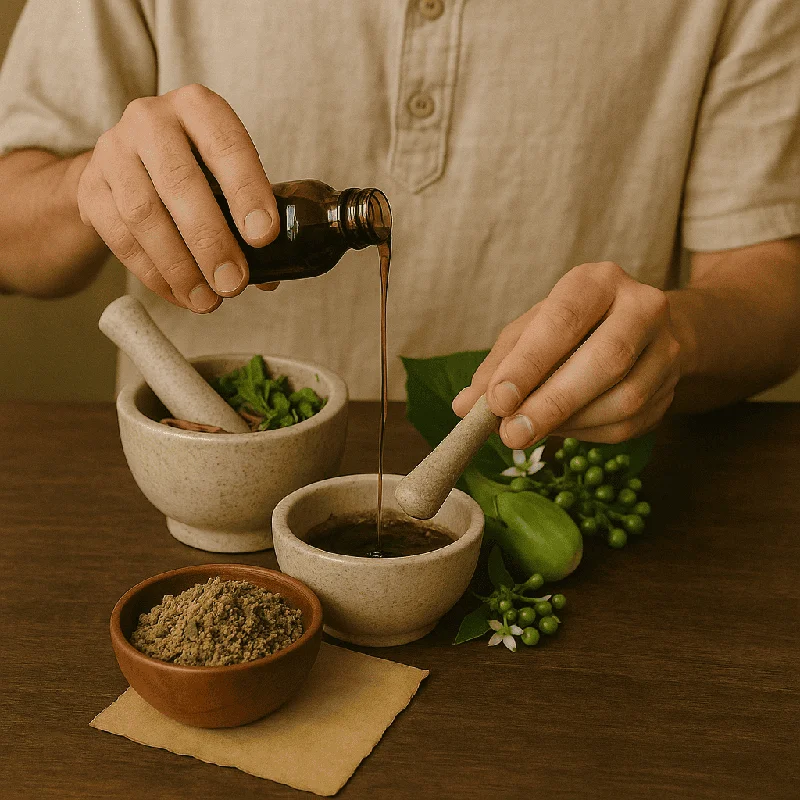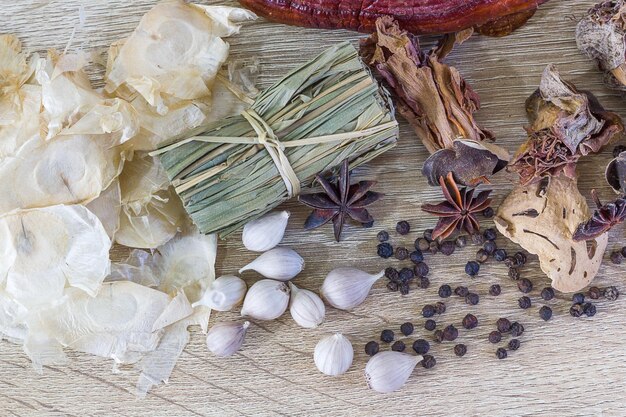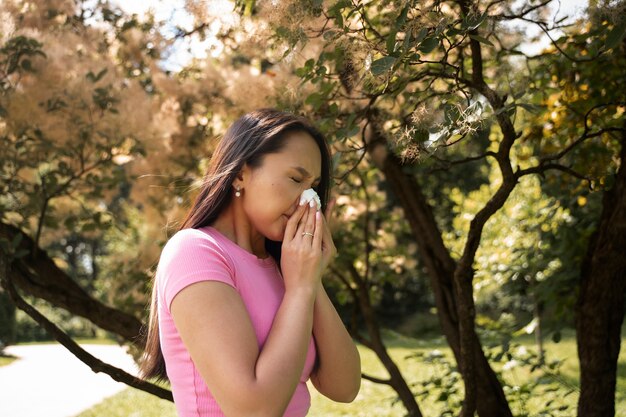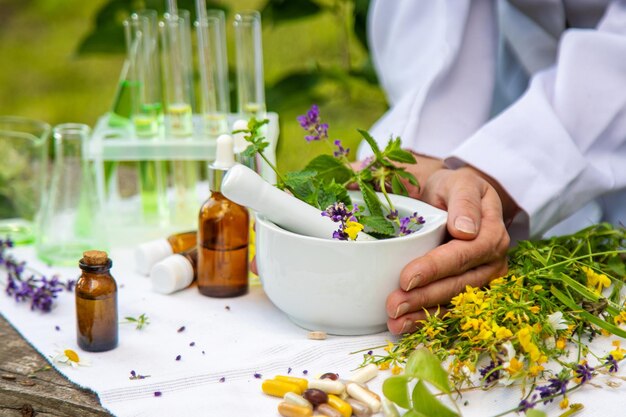Ask Ayurvedic doctor a question and get a consultation online on the problem of your concern in a free or paid mode. More than 2,000 experienced doctors work and wait for your questions on our site and help users to solve their health problems every day.
Brihatyadi Kashayam Uses: A Science-Backed Ayurvedic Remedy

Ayurveda, one of the world’s oldest holistic healing systems, has been steadily gaining recognition in modern medical communities. Within this rich tradition, Brihatyadi Kashayam stands out as a prominent herbal decoction (kashayam) used to support various aspects of health, including respiratory well-being, urinary tract function, and digestive harmony. In recent years, researchers have begun to investigate the potential mechanisms behind Brihatyadi Kashayam’s broad therapeutic scope, illuminating both its benefits and limitations. This article will delve into Brihatyadi Kashayam uses, exploring the latest scientific findings, historical context, and best practices for those interested in adopting this time-honored Ayurvedic remedy.
Table of Contents
What Is Brihatyadi Kashayam?
In Ayurveda, the term “kashayam” refers to a water-based herbal decoction, formulated by boiling specific herbs and condensing the liquid to a concentrated form. Brihatyadi Kashayam is a traditional blend composed of multiple plant-based ingredients known for their synergistic properties. This decoction is primarily prescribed to address imbalances in the body, particularly those related to the respiratory and urinary systems, as described in classic Ayurvedic texts like the Ashtanga Hridaya and Charaka Samhita.
While Ayurvedic practitioners have touted the efficacy of Brihatyadi Kashayam for centuries, the remedy is steadily attracting the attention of modern researchers. According to a preliminary review published in the Journal of Ayurveda and Integrative Medicine in 2019, Brihatyadi Kashayam’s various components may offer a range of health benefits through their antimicrobial, anti-inflammatory, and antioxidant properties. This synergy makes it a compelling subject for ongoing scientific exploration.
Historical Background and Ayurvedic Principles
Ayurveda, often translated as “the science of life,” organizes health and disease around three fundamental bio-energies or “doshas”: Vata, Pitta, and Kapha. Each dosha is associated with specific physiological processes, and an imbalance in these doshas can lead to disease. Brihatyadi Kashayam is traditionally indicated for conditions often linked to Kapha and Vata disturbances, such as:
-
Coughs and respiratory difficulties
-
General weakness and fatigue
-
Certain types of urinary discomfort
Ayurvedic scholars emphasize that the formulation’s warming and soothing properties help restore balance to the doshas, ultimately aiming to bring the body back to equilibrium. Over time, practitioners fine-tuned the recipe, culminating in the classical formulation widely available today through Ayurveda pharmacies and clinics.
Key Ingredients in Brihatyadi Kashayam
Brihatyadi Kashayam typically contains a curated list of herbs selected for their complementary actions. While variations in the recipe may exist depending on regional and practitioner preferences, below are some common ingredients:
-
Brihati (Solanum indicum): Often considered a core component of this blend. Research suggests that Solanum indicum possesses anti-inflammatory and bronchodilatory properties, making it beneficial in respiratory conditions.
-
Kantakari (Solanum xanthocarpum): Another solanaceous plant known to help alleviate respiratory issues such as asthma and bronchitis. Preliminary animal studies indicate its potential anti-inflammatory effects.
-
Gokshura (Tribulus terrestris): Traditionally used to support urinary tract health, Gokshura may reduce inflammation in the urinary system and promote kidney function.
-
Shalaparni (Desmodium gangeticum) and Prishnaparni (Uraria picta): Commonly used in various Ayurvedic decoctions for their antimicrobial and immune-modulatory properties.
-
Punarnava (Boerhavia diffusa): Known for its diuretic and anti-inflammatory activities, Punarnava is often included in Ayurvedic formulations aimed at kidney and urinary support.
The combination of these herbs potentially yields a multi-targeted action, addressing both symptom relief and systemic health support. Individual responses, however, can vary based on a person’s constitution, severity of symptoms, and lifestyle factors.
Mechanisms of Action: A Scientific Perspective
Although more large-scale clinical studies are needed to solidify scientific consensus, initial research and laboratory experiments offer insights into how Brihatyadi Kashayam may exert its effects:
-
Bronchodilation: Certain herbs in Brihatyadi Kashayam exhibit bronchodilatory properties, potentially helping to expand the airways and improve breathing in conditions like asthma and chronic obstructive pulmonary disease (COPD).
-
Anti-inflammatory Effects: Many ingredients contain phytochemicals (e.g., alkaloids, flavonoids) that reduce inflammation, a critical factor in both respiratory and urinary tract conditions.
-
Antimicrobial Properties: Herbs such as Solanum indicum have demonstrated broad-spectrum antimicrobial activity in lab settings, which could help in managing infections in the lungs and urinary system.
-
Diuretic Action: Components like Gokshura and Punarnava may promote diuresis (increased urine flow), supporting kidney function and assisting in flushing out toxins.
These interconnected pathways underscore why Brihatyadi Kashayam has been a staple in Ayurvedic medicine for centuries and why it continues to be investigated in modern research contexts.
Evidence-Based Health Benefits
1. Respiratory Health
Traditional Use and Modern Findings
In Ayurveda, Brihatyadi Kashayam is frequently prescribed to manage conditions marked by chest congestion, wheezing, and persistent coughs. Modern researchers highlight the possible bronchodilatory effects of ingredients like Brihati (Solanum indicum) and Kantakari (Solanum xanthocarpum). A study referenced in the Journal of Ethnopharmacology(2018) found that extracts from these plants could help relax bronchial muscles in animal models, pointing to a potential benefit in easing breathing difficulties.
Practical Tips
-
Steam Inhalation: Some practitioners recommend inhaling steam from the kashayam or adding herbal balms to hot water to open up airways.
-
Lifestyle Adjustments: Combining kashayam use with breathing exercises (Pranayama) and diet modifications could amplify its beneficial respiratory effects.
2. Urinary Tract Support
Traditional Use and Modern Findings
Gokshura (Tribulus terrestris) and Punarnava (Boerhavia diffusa) are frequently used in Ayurveda for urinary tract health. Preliminary clinical trials have noted a mild diuretic effect, which might help in flushing out bacteria and reducing inflammation in the urinary system. While these findings are promising, more extensive, placebo-controlled trials are needed for definitive conclusions.
Practical Tips
-
Hydration: Adequate water intake boosts urinary system health.
-
Synergistic Herbs: Some Ayurvedic doctors may recommend combining Brihatyadi Kashayam with other herbal formulas for more targeted support (e.g., Chandanasava or Gokshuradi Guggulu).
3. Digestive Wellness
Traditional Use and Modern Findings
While not its most famous application, Brihatyadi Kashayam includes herbs known to support gut health. Solanum species, for instance, contain compounds that might help modulate gut flora and reduce gastrointestinal inflammation. A 2020 survey in the Journal of Ayurveda and Integrative Medicine indicated that patients who used formulations containing Brihati and Kantakari reported mild improvements in indigestion and bloating, although sample sizes were small.
Practical Tips
-
Dietary Pairing: Pairing Brihatyadi Kashayam with easily digestible foods, such as rice gruel or vegetable soups, can soothe the digestive tract and enhance nutrient absorption.
-
Probiotics: Adding probiotic-rich foods, like yogurt or kefir, complements the herbal actions.
4. Anti-inflammatory Properties
Traditional Use and Modern Findings
Chronic inflammation is often at the root of various ailments, from respiratory disorders to autoimmune conditions. Herbs in Brihatyadi Kashayam—such as Shalaparni and Prishnaparni—have shown anti-inflammatory and immunomodulatory capacities in animal studies, potentially offering broader health benefits.
Practical Tips
-
Holistic Approach: Combined with an anti-inflammatory diet (rich in fruits, vegetables, and whole grains), regular exercise, and adequate sleep, Brihatyadi Kashayam can be part of a multi-pronged strategy for managing inflammation.
5. Antioxidant Activity
Traditional Use and Modern Findings
Free radicals and oxidative stress can accelerate aging and exacerbate chronic diseases. Certain phytonutrients in Brihati, Kantakari, and Punarnava exhibit antioxidant properties, neutralizing free radicals and potentially reducing oxidative stress. Although these findings remain preliminary, they highlight the decoction’s potential in supporting overall wellness.
Preparation and Dosage Guidelines
Ayurvedic practitioners generally provide personalized dosage recommendations based on an individual’s constitution (prakriti), age, and severity of health issues. However, some general guidelines include:
-
Traditional Preparation
-
Measure around 15–30 mL of the decoction per serving (depending on practitioner advice).
-
It’s often taken before meals to maximize absorption.
-
-
Ready-Made Formulations
-
Many Ayurvedic pharmacies offer readymade Brihatyadi Kashayam. Always check the label for dosage instructions.
-
Store in a cool, dry place away from direct sunlight.
-
-
Combination with Other Therapies
-
Some healthcare providers may recommend combining Brihatyadi Kashayam with other Ayurvedic formulas, yoga practices, or even certain modern medications to optimize outcomes.
-
Potential Side Effects and Precautions
While Brihatyadi Kashayam is generally considered safe under professional supervision, it’s crucial to acknowledge potential risks:
-
Allergic Reactions: Individuals with known allergies to certain Solanum species or other included herbs should exercise caution.
-
Pregnancy and Breastfeeding: Adequate safety data are lacking. Pregnant or nursing women should consult a qualified Ayurvedic practitioner or obstetrician before use.
-
Medication Interactions: Herbs with diuretic or anti-inflammatory effects can interact with prescription drugs (e.g., blood pressure medications, NSAIDs). Seek medical advice if you’re on long-term medication.
-
Excessive Use: Overuse of any herbal decoction can burden the liver and kidneys. Always adhere to recommended dosages.
Current Research and Ongoing Studies
As Ayurveda continues to gain traction worldwide, more clinical and laboratory studies are emerging to examine the scientific basis of herbal formulations. According to a 2021 review in the Journal of Traditional and Complementary Medicine, there are ongoing human trials assessing the impact of Brihatyadi Kashayam on:
-
Chronic bronchitis and mild-to-moderate asthma
-
Urinary tract infections (UTIs) and recurrent cystitis
-
Inflammatory markers in rheumatoid arthritis
However, the field still lacks large-scale, double-blind, placebo-controlled studies—considered the gold standard in medical research—to definitively confirm its efficacy. Collaboration between Ayurvedic experts and mainstream medical researchers could pave the way for more robust findings, improving the global recognition and standardized application of Brihatyadi Kashayam.
FAQ: Frequently Asked Questions
-
Is Brihatyadi Kashayam suitable for children?
-
Consult a qualified Ayurvedic practitioner. In pediatric cases, dosages are often adjusted based on the child’s weight, age, and specific health condition.
-
-
Can I use Brihatyadi Kashayam for asthma?
-
Ayurvedic texts do suggest it for respiratory conditions. Modern research also indicates possible bronchodilatory effects. However, always consult a healthcare professional before replacing or supplementing your asthma medication.
-
-
Are there any dietary restrictions when taking Brihatyadi Kashayam?
-
While there are no strict universal restrictions, many practitioners recommend avoiding excessively cold, greasy, or sugary foods to optimize the herb’s efficacy.
-
-
How quickly can one see results?
-
Response times vary widely based on the condition treated. Some users report feeling improvement within a few days, while others might need a few weeks for noticeable changes.
-
-
Do I need a prescription?
-
In many regions, you can purchase Brihatyadi Kashayam over the counter. Still, consulting with an Ayurvedic doctor or integrative medicine specialist is beneficial for personalized care.
-
Conclusion: Final Thoughts on Brihatyadi Kashayam Uses
Brihatyadi Kashayam is a staple in Ayurvedic medicine, celebrated for its potential to support respiratory, urinary, and digestive health. Rooted in ancient texts and gaining modern research interest, this herbal decoction encapsulates the synergy of multiple botanicals. While preliminary scientific evidence points to beneficial anti-inflammatory, antimicrobial, and antioxidant properties, more extensive clinical trials are needed to solidify these claims.
For those curious about integrating Brihatyadi Kashayam into their health regimen, it is crucial to do so under the guidance of a qualified healthcare professional—especially if you have pre-existing conditions or are on medication. Balanced dosha management, a nutrient-rich diet, and regular exercise can further enhance the benefits of this time-tested remedy.
Disclaimer: This article is for informational purposes only and should not be considered medical advice. Always consult a qualified healthcare provider before making any changes to your treatment plan.
Call to Action
If you found this deep dive into Brihatyadi Kashayam uses helpful:
-
Share this article with friends and family who might benefit from Ayurvedic insights.
-
Comment below with your experiences or questions about Brihatyadi Kashayam.
-
Subscribe to our newsletter for more scientifically grounded explorations of Ayurvedic and integrative health solutions.
By staying informed and working in tandem with knowledgeable healthcare practitioners, you can make the most of what Ayurveda and modern science have to offer.





